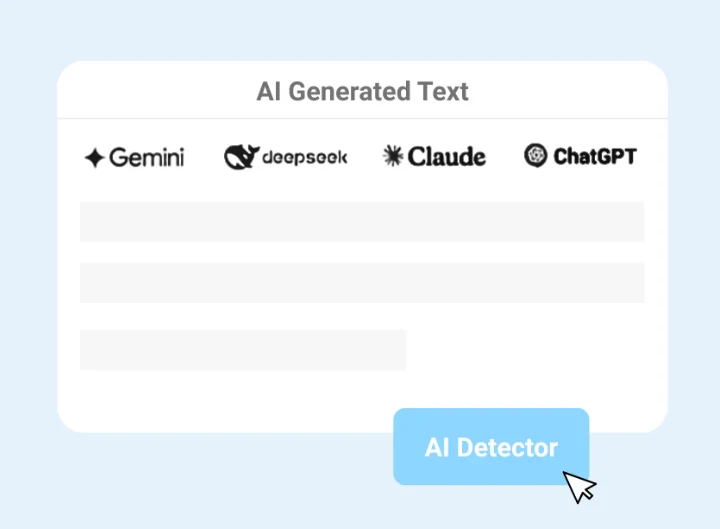Should I Opt Out of AI Resume Screening?

In today’s fast-paced job market, many organizations have adopted Artificial Intelligence (AI) to streamline the recruitment process. One of the most common applications of AI in hiring is resume screening, where algorithms analyze resumes to identify the most qualified candidates. While AI resume screening can be highly efficient and save recruiters valuable time, many job seekers are questioning whether they should opt out of this automated process. In this article, we will explore the pros and cons of AI resume screening and help you decide if opting out is the right choice for you.
What is AI Resume Screening?
AI resume screening involves the use of algorithms and machine learning models to scan and evaluate resumes. The goal is to quickly identify candidates who meet specific qualifications and match the job requirements. These systems often assess resumes for keywords, relevant experience, skills, and even sentiment or phrasing style. AI resume screening can help employers handle the high volume of applications they receive by automating the first step of the hiring process.
The Pros of AI Resume Screening
Before deciding whether to opt out, it’s essential to understand the advantages that AI resume screening can offer both employers and job seekers.
1. Efficiency and Speed
AI systems can process resumes far faster than human recruiters. In industries where hundreds or even thousands of resumes are submitted for a single position, AI resume screening helps to filter candidates quickly, allowing recruiters to focus on those most likely to succeed in the role. For job seekers, this means that their resumes are reviewed faster, which can lead to quicker feedback and potentially shorten the hiring process.
2. Consistency and Objectivity
One of the significant advantages of AI resume screening is its ability to maintain consistency and objectivity. Unlike human recruiters, who may be influenced by unconscious biases or subjective impressions, AI focuses solely on the qualifications and experience outlined in the resume. This ensures that all candidates are evaluated based on the same criteria, which can result in a fairer selection process.
3. Tailored Job Matching
AI-powered tools can analyze resumes and match them with job descriptions based on skills, experience, and qualifications. These systems can detect patterns that may be harder for humans to spot, potentially matching candidates with roles that align with their skills, even if they don’t meet the traditional criteria. For job seekers, this may open up opportunities for positions they might not have considered or been selected for through a manual process.
4. Reducing the Recruitment Bias
AI resume screening can help reduce bias related to gender, race, age, or other personal factors. Since AI evaluates resumes based on data and qualifications alone, it removes the potential for biased hiring decisions. This can be especially beneficial for employers aiming to promote diversity and inclusion within their workforce.
The Cons of AI Resume Screening
While AI resume screening has its benefits, there are several potential drawbacks that both job seekers and recruiters should consider before embracing this technology fully.
1. Lack of Human Insight
AI systems can analyze a resume’s content but often lack the nuanced understanding that human recruiters bring to the table. They may miss out on recognizing soft skills, unique personal experiences, or other non-traditional factors that could make a candidate stand out. This limitation can be particularly concerning for candidates with unconventional backgrounds or unique skills that might not fit neatly into an AI’s pre-programmed criteria.
2. Overreliance on Keywords
AI resume screening is heavily reliant on keywords. If your resume lacks certain terms or phrases that the AI is programmed to detect, it might get overlooked, even if you have the qualifications the employer is seeking. This is especially true if the AI system is not trained to understand variations in phrasing or industry-specific terms. As a result, job seekers may need to optimize their resumes for specific keywords, which can feel like “gaming the system” rather than showcasing their genuine experience and skills.
3. Potential for Technical Glitches
AI systems, like any technology, are not perfect. They can be prone to technical glitches or errors, which could result in resumes being incorrectly classified as unqualified or missing key information. Such issues could unfairly disadvantage candidates who have the right qualifications but whose resumes are not parsed accurately by the AI.
4. Decreased Human Interaction
Human interaction is an important aspect of the hiring process. Many job seekers value the opportunity to engage with a recruiter or hiring manager during the application process. AI resume screening, in contrast, removes this initial human connection, which could make the process feel impersonal or distant. This lack of interaction might also prevent the candidate from explaining certain aspects of their experience that AI may overlook or misinterpret.
5. Discrimination in AI Models
Despite the promise of reducing bias, AI systems can still be influenced by biased data. If the AI has been trained on historical hiring patterns that favor certain demographics or backgrounds, the system may perpetuate existing biases. This could result in discriminatory practices, even if unintentionally, especially if the algorithm has been designed based on past hiring trends rather than a truly diverse and inclusive approach.
Should You Opt Out of AI Resume Screening?
Deciding whether to opt out of AI resume screening depends on a variety of factors, including your personal preferences, career goals, and the specific job you’re applying for. Here are some considerations to help guide your decision:
1. Evaluate the Employer’s Hiring Process
Before opting out, consider the type of employer and their hiring process. Large companies and organizations that receive high volumes of applications are more likely to use AI-driven resume screening. In such cases, opting out might mean your resume isn’t even seen by a human recruiter unless it passes the AI’s filters.
On the other hand, smaller companies or those with a more personal hiring process may place less emphasis on AI and more on human judgment. If you know that the organization values personalized approaches to hiring, opting out might not be necessary.
2. Consider the Role You’re Applying For
Certain industries and positions are more likely to utilize AI screening. Tech companies, for example, often rely on AI to filter resumes due to the large number of applicants and the need to process data efficiently. In contrast, creative fields like design or marketing might place more value on personal experience and creative portfolios, making it less likely that AI will be used exclusively.
If you’re applying for a technical role that requires specific skills and qualifications, AI resume screening can help ensure that your resume gets noticed. However, if you’re in a field where personal attributes and experience matter more than technical keywords, AI might not capture your strengths fully.
3. Optimizing Your Resume for AI Screening
If you choose not to opt out, make sure your resume is optimized for AI systems. This means using clear and relevant keywords that match the job description, ensuring that your experience and qualifications are easy to scan, and formatting your resume in a way that is friendly to AI algorithms. This way, you ensure that your resume is more likely to pass through the AI’s filters and make it into the hands of a human recruiter.
4. Balancing AI with Human Interaction
Some companies offer a hybrid approach where AI handles initial screening, but human recruiters follow up for interviews or further evaluation. In these cases, opting out of AI screening might not make a significant difference, as the human recruiter will still be involved in the hiring process. However, if you’re concerned about the lack of personal touch, ensure that the company values human interaction in its overall process.
Conclusion
AI resume screening is becoming a common feature of the modern job application process, but whether you should opt out depends on your specific circumstances. While AI offers speed, consistency, and reduced bias, it also comes with potential drawbacks such as missed human insight, reliance on keywords, and technical glitches. If you’re applying to a large company with an automated process, opting out may reduce your chances of being noticed. However, optimizing your resume for AI or seeking companies that prioritize human interaction may be a viable solution.
Ultimately, understanding the specific job, company, and hiring process you’re engaging with will help you make the best decision. Whether you choose to embrace or opt out of AI resume screening, it’s important to remember that the ultimate goal is to present your skills and experience in the best possible light.

Building Brand Momentum Through Smarter, More Connected Digital Strategies

Why Retail Software Testing is Critical for Effective E-commerce Development?

How Sales Teams Increased Productivity with Parallel Dialers

Online MBA in Finance Management: Where Ambition Meets Opportunity

Online MBA in Finance Management: Where Ambition Meets Opportunity

SEO for ChatGPT: Boost Your Brand in AI Responses

Unlocking Innovation: How an AI Software Development Service Can Transform Your Business

Artificial Intelligence: Transforming the Future of Business and Everyday Life








